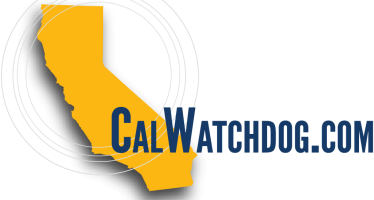Shultz!!!
Anthony Pignataro:
Someone needs to sit down with former U.S. Secretary of Labor/Treasury/State George P. Shultz and find out what he actually thinks about clean air regulations. Because right now, he’s all over the map.
On Sept. 12, the Sacramento Bee ran his commentary “Clean air law is key to our future.” In it, he says in no uncertain terms that California’s global warming law — known as AB 32 — is all good and Proposition 23, which would suspend AB 32 until unemployment drops below six percent, is bad, Bad, BAD:
Make no mistake: Proposition 23 seeks to derail our future through a process of indefinite postponement of our state’s clean energy and clean air standards. A future for California based on clean-power technologies is both an economic and environmental necessity.
Put simply, Shultz likes AB 32, which puts a whole bunch of new air quality regulations on the state (Shultz calls these “emissions standards,” which I guess is fine). Shultz says these standards are changing the way the U.S. is doing business:
At first, California’s establishment of carbon emissions standards for cars and trucks, which far exceeded the federal requirement, drew a hostile response from the federal government. But early this year, the U.S. Department of Transportation and the EPA followed California’s lead and announced national emissions standards that will bring us a cleaner fleet of automobiles. So California’s example has had a positive and constructive impact.
Call them standards or regulations, it’s clear from reading this piece that Shultz is all for them. But then I saw a big op-ed (subscription required) in today’s Wall Street Journal titled “Principles for Economic Revival.” It carries five bylines, the first of which is Mr. George P. Shultz (the rest are economists and professors of economics). It outlines five “proven economic principles” that will help end “America’s financial crisis, deep recession and anemic recovery.”
The fourth principle is quite simple: “(E)nact a moratorium on all new regulations for the next three years, with an exception for national security and public safety.”
It gets better:
Going foward, regulations should be transparent and simple, pass rigorous cost-benefit tests, and rely to a maximum extent on market-based incentives instead of command and control. Direct and indirect cost estimates of regulations and subsidies should be published before new regulations are put into law.
That’s a pretty good summary of why Prop 23 got onto the ballot — AB 32 is not transparent, amazingly complex and will quite possibly hurt many companies across the state. But even though Shultz says a big series of regulations like AB 32 is bad for our economy, he says AB 32 is good for our economy.
Don’t feel bad if your head is spinning. Just imagine what’s going on in Shultz’s noggin.
Posted Sept. 16, 2010
Related Articles
U.S. creating mostly low-wage jobs
April 17, 2012 By John Seiler A couple of days ago I wrote an article, “Why pensions are going broke.”
CalWatchdog Morning Read – September 20
Union battles Caltrans over costly move Gov. Brown mulls bills overseeing psych meds for foster kids Energy company won big giveaway from
CA Employment Report reveals slow job growth, shrinking labor force
The California Center for Jobs & the Economy has just released their “California Employment Report” for April 2015. Among the most




